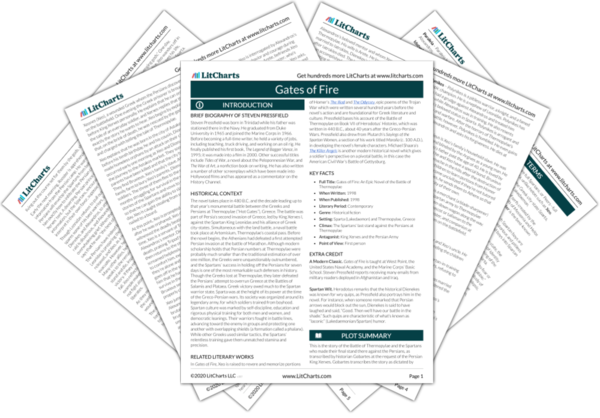Arete befriends Xeo. It turns out that Rooster is Dienekes’ illegitimate nephew (Idotychides was Arete’s brother). Arete believes that Rooster’s sullenness is due to the fact that he’s half Spartan but relegated to helot status because of the circumstances of his birth. This again highlights the difference between him and Xeo, also an outsider, who deliberately sought out relationships with the Spartans.
